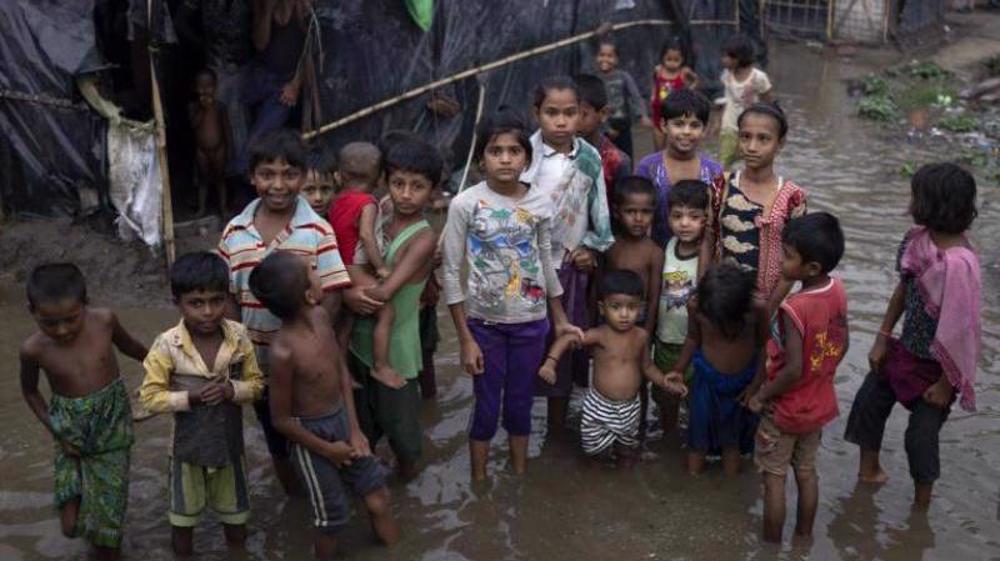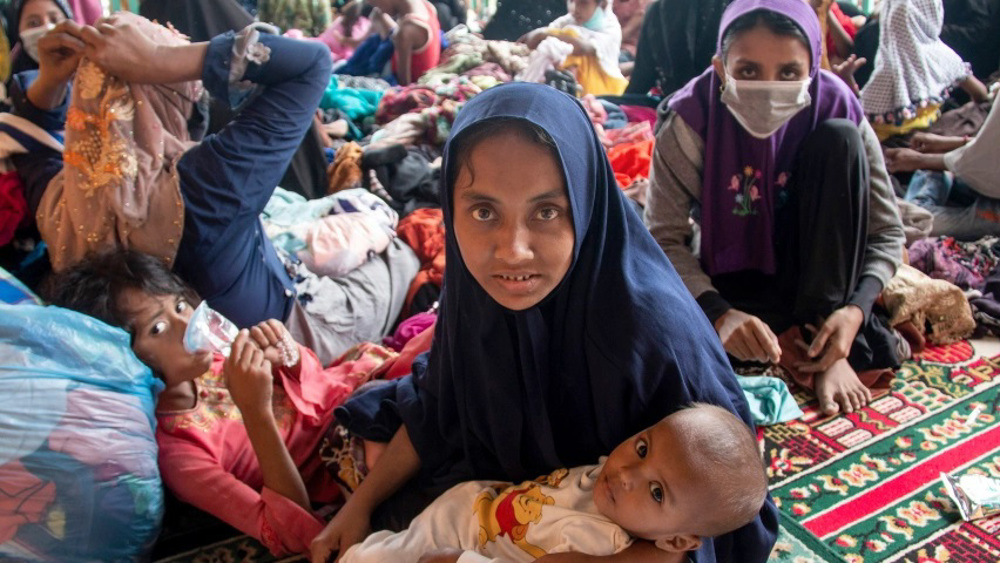Rohingya refugees censure UN for ‘devastating’ cuts to food aid
Rohingya refugees have decried as “devastating” cuts the United Nations has made to their food aid due to a massive funding gap, saying they are desperately struggling to survive after the reductions.
Last month, the UN World Food Programme (WFP) announced that a $125-million donation shortfall had forced the organization to slash rations for Rohingya in Bangladesh, monthly food vouchers were cut from $12 to $10 per person starting in March.
The world's largest humanitarian organization also warned further cuts were "imminent" without an immediate cash injection.
The announced reductions have already made the survival hard for the nearly one million Rohingya refugees living in Bangladesh's overcrowded camps, where they are reliant on food aid and malnutrition is already raging.
Twelve civilian groups representing the mostly Muslim minority community said the cuts would be "devastating."
"We strongly believe that the shortage of funding for the Rohingya response is a failure of the United Nations," the groups, including the Arakan Rohingya National Union, said in a joint statement.
They said the cuts would deteriorate an already dire economic and humanitarian situation in the squalid camps, warning that the cuts "will have severe implications, including child labor, human trafficking, child marriage, illegal activities, prostitution and a hostile environment."
Tom Andrews, the UN special rapporteur on human rights in Myanmar, denounced the move as "shameful" and "catastrophic," urgently appealing for countries to reverse the course.
"These rations cuts are a stain on the conscience of the international community. I have spoken with desperate families in the camps who have already had to cut back on essential food items due to a price spike. Reversing these food aid cuts is a matter of life and death for Rohingya families."
Andrews also warned that malnutrition, anamia and stunted growth were already rife in the camps.
"We don't have any income and the rations are reduced," said 40-year-old Rohingya refugee Rahela Begum, whose son is ill and malnourished.
In 2017, the Myanmar military, backed by local Buddhist mobs, launched a horrific crackdown against the Rohingya community.
The internationally-condemned operation forced 750,000 Rohingya from their homes into neighboring Bangladesh. Thousands were killed, raped, tortured, or arrested in the crackdown, perpetrated with “genocidal intent,” according to the United Nations, which has described the community as the most persecuted minority in the world.
At least 920,000 Rohingya refugees, half of them under 18, currently remain stuck in crowded conditions in refugee camps in Bangladesh’s southeastern border district of Cox’s Bazar.
Myanmar refuses to recognize the Rohingya as citizens, and officials even refrain from using the word ‘Rohingya,’ which means a native of Rakhine, a state in Myanmar where they had lived for centuries before the state-sponsored violence began in 2017. Bangladesh refuses to grant them citizenship, too.
Iran’s layered arsenal primed to deter – and decimate – US warships in Persian Gulf
Iranian commander dismisses US military buildup in West Asia as ‘theatrical gesture’
US special envoy says Trump ‘curious’ as to why Iran hasn’t ‘capitulated’ yet
Lindsey Graham urges Trump to ignore aides opposing war on Iran
Far-right, anti-Islam protest sparks counter-protests in Manchester
Press TV's news headlines
Sudan’s mining sector suffers $7 billion loss amid ongoing civil war
Ansarullah slams Israel’s massacre in east Lebanon, urges unified Arab action











 This makes it easy to access the Press TV website
This makes it easy to access the Press TV website